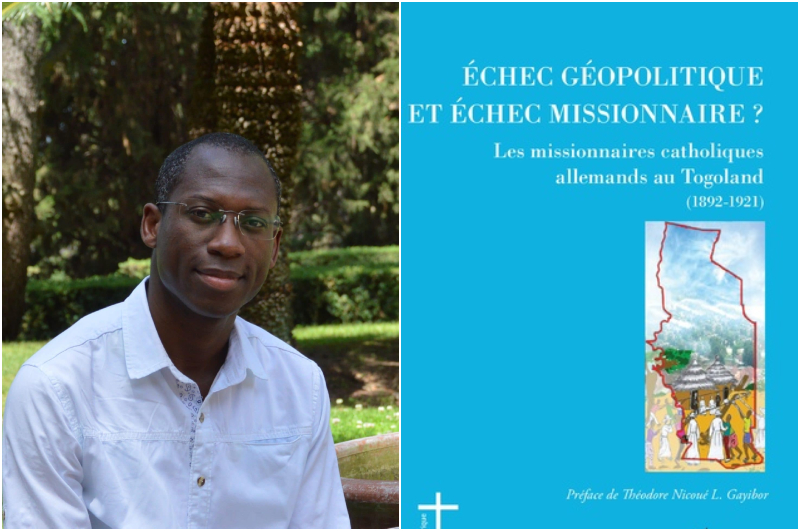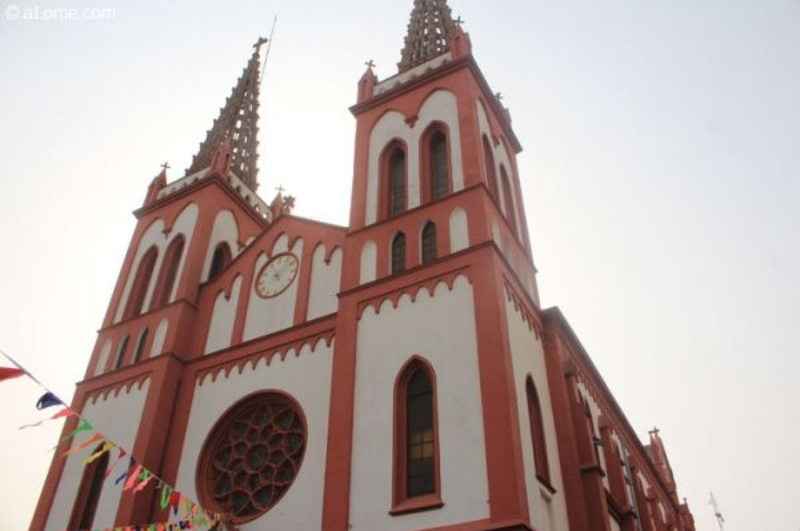

The Jesuit Historical Institute in Africa (JHIA) feels honoured to sponsor another online academic presentation from Father Jean-Paul Savi Atsu, SJ.
Jean-Paul is a Togolese Jesuit currently doing a doctoral degree in Contemporary History at the Gregorian University Rome, Italy.
Fr. Jean-Paul, SJ has also tackled other works that have grabbed headlines in the Vatican, notably a book titled "Geopolitical Failure and Missionary Failure?" The German Catholic Missionaries in Togoland," in which he explores the numerous phases that influenced Togo's evangelism.
The title of his recent academic presentation, Universalité missionnaire et identités nationales dans le Vicariat Apostolique du Togo (1892-1937), is very catchy, and it sums up what he basically discussed in the presentation: the universalities of mission and national identities in Togo during the Apostolic Vicariate of Togo from 1892 to 1937. Observes in his general opening statement that “The history of the Catholic Church in Togo is a history inscribed in a turbulent world with political and religious issues that are still current. A German protectorate since 1884, Togo was definitively divided between France and England after the First World War and the Treaty of Versailles (1919).” The research context is in the distinctive period and immediately before the World War II. Fr. Jean-Paul makes an analysis in the shift of mission styles in Togo which he discovered that the change of Mission personnel in Togo relied heavily on the change of colonial authorities. All the Germans there were expelled, including the missionaries, making it a very intriguing time. However, since the French tutelage pushed for the protection of missions in mission territories, religious missions were protected and favoured according to the international standards of the time regardless of nationality. The Church also tried to keep politics and missions apart. He wants to know more about whether these patterns were planned or if something significant occurred to cause the kind of adjustments that were observed. He makes the fascinating observation that Propaganda Fide was developed to combat the involvement of nationalism and nationalistic interests in the missionary activity in 1622, when Universalities (National Supra) was already established.
Chapters of this study have been organised. In one of his political findings, he mentions how the colonial rulers occasionally saw the mission as an expansion of their own sphere of influence in the colony. Therefore, he conducts an analysis based on the mission's point of view. As a result, we learn that there has always been friction between missions and colonial authorities, as well as the Vatican's fervent desire to keep the mission universal and the practical difficulties associated with the local missions' or colonial authorities' refusal to accept missionaries of other nationalities.
The significance of the study topic in the history of the church is due to:
1) It aids in our comprehension of and response to the effects of World War I on missions in Africa, particularly the Catholic missions in Togo.
2) It enables us to better understand the transitional period between the time the Germans were expelled from Togo and the arrival of the French to settle, as well as the events that took place in that time, such as the abrupt reduction of the mission staff from ninety (90) to ten (10).
3) Examining the position of missions in Togo during the so-called interwar period, which runs from 1930, as we approach World War II, and coincides with the ordination of some African priests, is also helpful. This period spans from the conclusion of World War I and the Treaty of Versailles (1919) to 1930.
At the end of his abstract, Jean-Paul, SJ, concludes that his research revisits this history by demonstrating the gears between politics and church mission and how political facts tested the universality and supranational (internationalism) of the evangelization mission in Togo between 1892 and 1937.
Related Articles
Select Payment Method
Pay by bank transfer
If you wish to make a donation by direct bank transfer please contact Fr Paul Hamill SJ treasurer@jesuits.africa. Fr Paul will get in touch with you about the best method of transfer for you and share account details with you. Donations can be one-off gifts or of any frequency; for example, you might wish to become a regular monthly donor of small amounts; that sort of reliable income can allow for very welcome forward planning in the development of the Society’s works in Africa and Madagascar.
Often it is easier to send a donation to an office within your own country and Fr Paul can advise on how that might be done. In some countries this kind of giving can also be recognised for tax relief and the necessary receipts will be issued.


